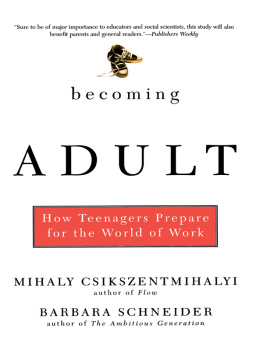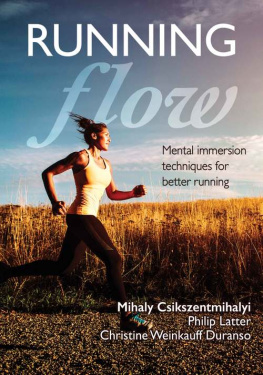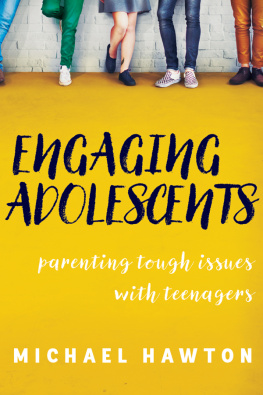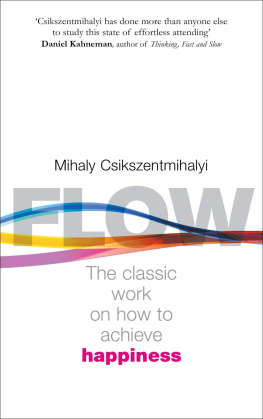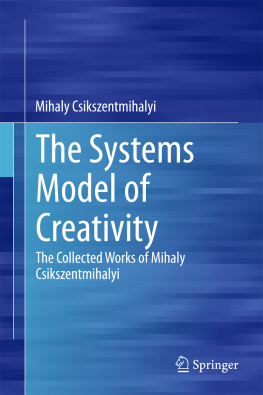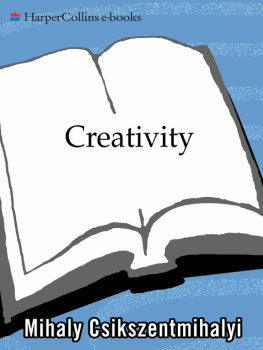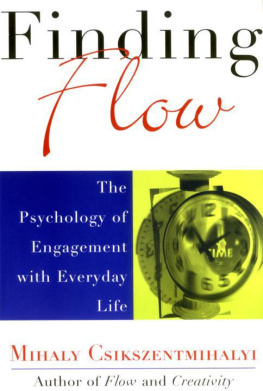All rights reserved. Printed in the United States of America. No part of this book may be reproduced in any manner whatsoever without written permission except in the case of brief quotations embodied in critical articles and reviews. For information, address Basic Books, 10 East 53rd Street, New York, NY 10022-5299.
TABLES
Demographic Characteristics of the Base-Year Sample
Educational Expectations by Selected Demographic Variables
Mean Time Spent in Activities by Selected Demographic Variables
Expectations About the Future
Frequently Mentioned Occupations
Values of Occupations
Examples of Responses for Learning and Doing for Three Occupations by Grade
Task Motivation and Future Orientation
Percentage of Time Spent in Work, Play, Both, and Neither
Types of Jobs Held by High School Students Who Work
Mean Quality of Experience Scores in Paid Work Versus Other Activity Types for Teens Who Have Jobs
Quality of Experience While in Flow, Anxiety, Relaxation, and Apathy
Percentage of Time in Flow and Non-Flow States in Various Activities
Average Intensity Level of Flow in Different Activities (results at person level)
Quality of Experience for High-Flow and Low-Flow Groups (results of T-tests at person level)
Associations Between Mean Flow Scores and Other Outcome Measures
Selected Variables Significantly Related to Family Type
Students Attitude About School by Family Type
NELS and ESM Estimates of Time Doing Homework by Family Type
Recent and Cumulative Grades by Family Type
Percentage of Time Common Activities Are Utilized in School Subjects
Student and School Characteristics by Site
Postsecondary Student Outcomes by Site
Postsecondary College Attended by Student Background and Characteristics
Logistic Regression Models to Predict College Outcomes with Academic Variables
Logistic Regression Models to Predict College Outcomes with Experiential Variables
FIGURES
Overall Quality of Experience in Work and Play
Quality of Experience Doing Work-Like Activities (person-level scores)
Quality of Experience Doing Play-Like Activities (person-level scores)
Adolescents Mood and Salience in School-Related Tasks
Time Spent in Classroom Activities
Quality of Experience in Common Classroom Activities
Flow in Classrooms by Student Characteristics
Senior Sample One Year After High School Graduation
Path Model for Predicting College Enrollment
ACKNOWLEDGMENTS
We greatly appreciate the intellectual contributions of our co-principal investigators, Professor Charles Bidwell and Professor Larry Hedges. Throughout the six years of this study they consistently made meaningful and significant contributions to our work. We deeply thank them for their support and collegial spirit, which made this effort possible.
PREFACE
IN THE SUMMER OF 1991, the Alfred P. Sloan Foundation provided the University of Chicago with a grant to study career formation among adolescents. A research team of Charles Bidwell, Mihaly Csikszentmihalyi, Larry Hedges, and Barbara Schneider designed a national longitudinal study of adolescents in grades six, eight, ten, and twelve. A pilot study was conducted in 19911992, and the full-scale study was launched in the fall of 1992 and continued through 1997. This effort was unusual in that it brought together a diverse academic team of educators, psychologists, and sociologists to think about a problem commonly researched by scholars in career guidance and vocational development. Taking a different approach, the team decided that to understand how young people form ideas about future schooling and work, it is important to consider not only what the adolescents aspirations are but also how they are influenced by family, peer groups, schools, and the communities in which they live. It was assumed that this broad perspective would provide new insights into how todays teenagers think about the future and how much influence others have in helping them formulate their plans.
This is one of very few longitudinal studies of career development involving adolescents. The majority of previous studies on career development were not longitudinal, so it was difficult to ascertain how young peoples career aspirations and ideas of work changed over time. These types of questions were rarely asked of students in middle school, yet we had reason to believe that early experiences with work shaped attitudes and values that could be sustained into adulthood. Our study focused on populations typically under-represented in research on career development. Previous career studies focused primarily on males. With more women entering the labor force and obtaining higher levels of education, we decided to include equal numbers of young women in our sample. Teenagers from low-income families and minority groups were also frequently excluded from previous studies. Therefore, we deliberately sought school populations that would give our sample significant numbers of racial and ethnic minorities and adolescents from low-income families.
We also believed that to understand more about work in the lives of adolescents, we would need to use different methods than those used in more conventional studies of career development. Rather than investigate how personal attributes might predict occupational choice, we wanted to know what conditions enhanced knowledge about different occupations and career interests. To learn more about this we relied on the Experience Sampling Method (ESM) to obtain daily accounts of how students spend their time and how they feel from moment to moment throughout the day. We also created our own Career Orientation Survey (COS) to determine which students had more knowledge about the world of work and what factors seemed to contribute to it. The survey measures job knowledge in unique ways and examines adolescent experiences and activities related to particular job choices. To gain a deeper understanding of the influence of others on career knowledge, we also developed a peer sociometric questionnaire that identified whom adolescents relied on for advice about their futures.
This book describes the experiences of adolescents as they were reported in the first few years of data collection. Longitudinal data on the base-year high school graduates are used to examine the association between high school experiences and student decisions to enter postsecondary school or the labor force. Through interviews, surveys, time diaries, and other data sources, a picture emerges of how adolescents spend their time, how they feel about their relationships with their parents and friends, and what images they have of work and their future lives.

